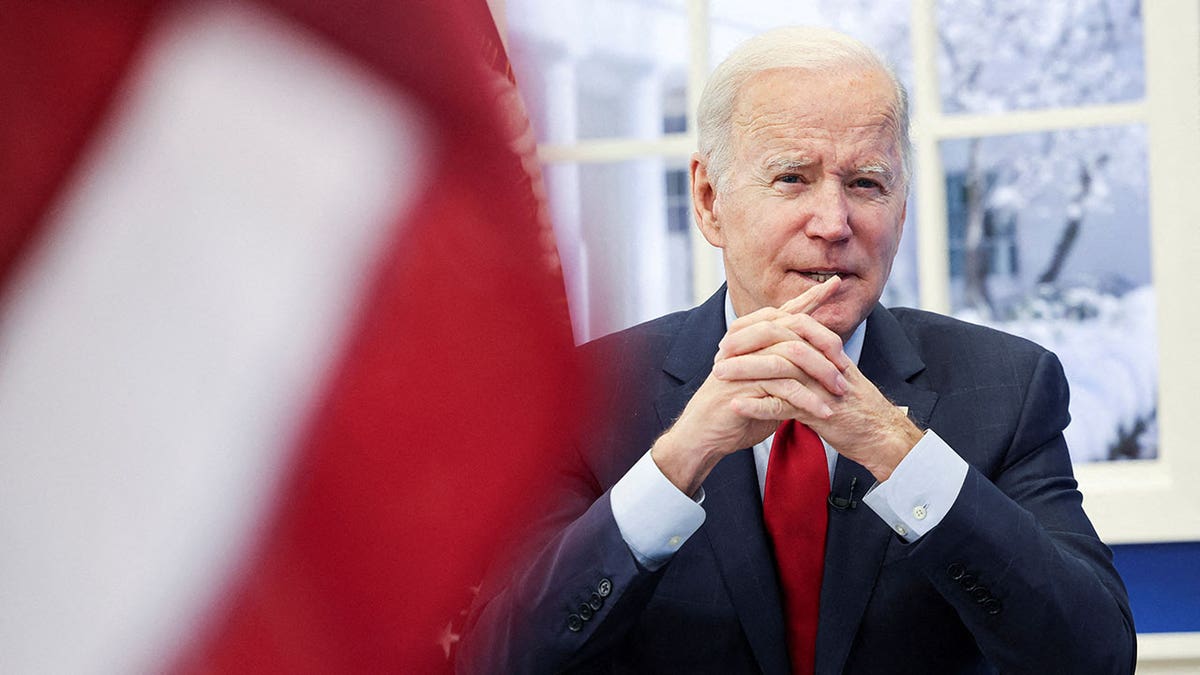Fox News Flash top headlines for January 6
Fox News Flash top headlines are here. Check out what's clicking on Foxnews.com.
Six members of the advisory board that worked with President Biden during his transition period before taking office are now calling on him to take a different approach to the COVID-19 pandemic than the one he is currently using.
In a series of opinion articles posted by the Journal of the American Medical Association, Drs. Ezekiel Emanuel, Michael Osterholm, Celine Gounder, David Michaels, Rick Bright and Luciana Borio offered various suggestions for how to move forward.
"As the omicron variant of SARS-CoV-2 demonstrates, COVID-19 is here to stay," Emanuel, Osterholm and Gounder wrote in a piece in which they say Biden's national strategy for COVID-19 response must be "updated."

Dr. Ezekiel Emanuel speaks at the Klick Health Ideas Exchange on June 15, 2015, in Philadelphia. (Neilson Barnard/Getty Images for Klick Health)
"The goal for the ‘new normal’ with COVID-19 does not include eradication or elimination, eg, the ‘zero COVID’ strategy. Neither COVID-19 vaccination nor infection appear to confer lifelong immunity," they wrote. "Current vaccines do not offer sterilizing immunity against SARS-CoV-2 infection. Infectious diseases cannot be eradicated when there is limited long-term immunity following infection or vaccination or nonhuman reservoirs of infection."
The "new normal," they explained, should be "recognizing that SARS-CoV-2 is but one of several circulating respiratory viruses that include influenza, respiratory syncytial virus (RSV), and more." They noted that people have been living normal lives while facing the threat of those other respiratory illnesses, and they must learn to view the threat of COVID-19 as just an additional threat alongside the others.
OMICRON, WINTER STROMS HIT US, SCHOOL DISTRICTS CLOSED OR DELAYED ACROSS MANY STATES
Still, they made clear that while this is a goal, COVID-19 is currently more serious than the other illnesses in terms of hospitalizations and fatalities.

President Biden speaks during a meeting with members of the White House COVID-19 Response Team at the White House complex in Washington, Jan. 4, 2022. (REUTERS/Evelyn Hockstein)
"What constitutes appropriate thresholds for hospitalizations and death, at what cost, and with what trade-offs, remains undetermined," they said.
What the Biden administration should do, they suggested, is to put in place infrastructure that "includes real-time electronic collection of comprehensive information on respiratory viral infections, hospitalizations, deaths, disease-specific outcomes, and immunizations merged with sociodemographic and other relevant variables." This system would collect data at the national, state and local level, as well as from various academic institutions, labs and health care systems.
Additionally, they said, there should be a "permanent public health implementation workforce" to address ongoing problems and emergencies. This would include public agency workers and an increase in school nurses. They also called for creating pathways to increase telemedicine and the ability for doctors to practice and bill in different states.
Finally, they said it is imperative "to rebuild trust in public health institutions and a belief in collective action in service of public health."
White House press secretary Jen Psaki said she had not read the articles, when asked on Thursday. But she insisted that Biden's goal is still to "defeat the virus."
"The president's focus and objective is to save as many lives as possible," Psaki said. "And we know what works and we know that pushing more people, getting more people vaccinated, getting more people boosted, encouraging mask wearing, making sure schools have the resources they need to stay open and do that in a safe way – these are steps that work."
An article from Emanuel, Michaels and Bright said the government's early response to the pandemic was "seriously flawed," and that problems continue to exist.
"Early guidance on testing was mistargeted, getting tested was a logistical nightmare, and too few tests were performed," they wrote. "Once an acceptable, yet suboptimal, testing infrastructure was established, it was marginalized, thought to be superfluous because of the vaccines. Even now, testing results are not reliably linked with sociodemographic data, vaccination status, or clinical outcomes; the availability of reliable rapid tests remains limited; and prices are too high."
In order to get to a new normal, the doctors said the country needs to set up "a comprehensive, permanently funded system for testing, surveillance, and mitigation measures that does not currently exist."
A third article, from Borio, Emanuel, and Bright, focused on "faster development and more efficient deployment of vaccines and therapeutics."
In terms of vaccines, the doctors offered strong support for mandates, arguing that they "have been shown to be effective, especially among individuals who are not fundamentally opposed to vaccination, but are procrastinating, confused, or have barriers to access." They also claimed that mandates are needed in order to get 90% of the population vaccinated.
Supporting Biden's mandate approach, they said mandates for government employees and contractors, health care workers, and employees of businesses with at least 100 employees are "necessary" in order for enough people to be vaccinated "to return to pre–COVID-19 life expectancy and social and economic vitality."
That being said, they pushed for more work to be done to determine optimal dosages and administration of the existing vaccines.
CLICK HERE TO GET THE FOX NEWS APP
In terms of therapeutics, they recognized the various levels of effectiveness of treatments such as remdesevir and dexamethasone, monoclonal antibody treatment, and oral treatments like Molnupiravir and Paxlovid.
They called for any outpatient treatments "to be made widely available at no cost," and that treatment must be made available "immediately" after a positive test.

















































